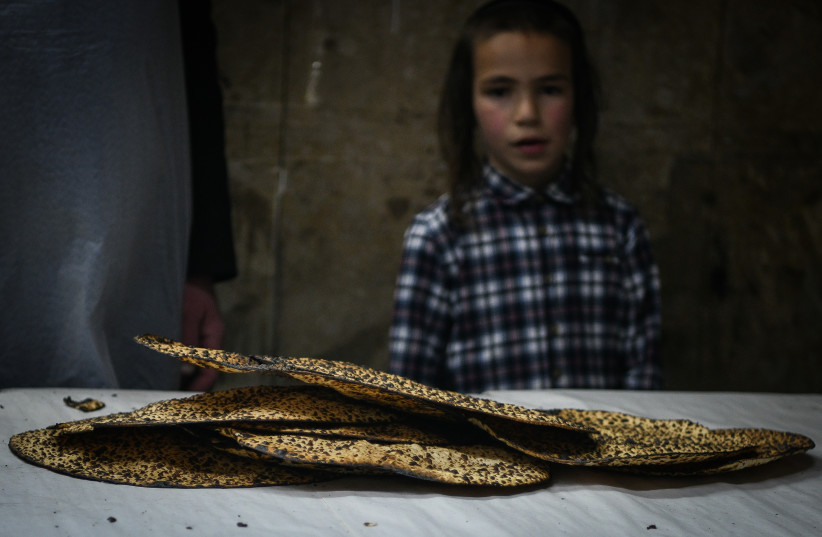For the first time in two years, COVID is no longer the most spoken about agenda item in either my personal or professional circles. It is a welcome change. Now, we talk about Passover and Ukraine. And while I wish the world did not need to talk about, think about and take action for Ukraine, there is no denying its immediacy and urgency.
The crisis in Ukraine and the byproducts of the Russian invasion into Ukraine are rightfully and assuredly front-burner items. Real risks and real tragedy are unraveling before our eyes. The spillover into Poland, Moldova, Hungary and Romania is significant. Among the millions of refugees are thousands of Jews who need help our help.
Thousands of Jews who, unlike us, will be celebrating Passover in new and different ways this year. For them, this Passover will certainly be different from all others.
However different our past two COVID-era Passover celebrations were, they pale in comparison to the Passover experience these Ukrainians and now-former Ukrainians will commemorate.
Two years ago we bemoaned the restricted Passover celebrations we had due to COVID. Passover preparations were private and very modest. People who had never made Passover at home were forced to clean and cook and make Pesach. Preparations were more modest than in previous years. The rabbis even eased the rules of koshering to accommodate for COVID. And most Seder tables were less populated than in the good old pre-pandemic holidays.

Last year, by the time Passover rolled around, restrictions had eased a bit. Passover Seders were still modest, but not as bare bones in terms of guest lists as in the previous year. This year we are just about at full blast. Hotel programing is up and running and guests have been invited to Sedarim.
Passover will never be the same – and it shouldn’t be. Passover is about remembrance, it is about traditions and it is about family. And we should always remember – and tell over, the history of our Jewish nation’s Passover and of our own Passovers.
Since childhood, Passover has always been my personal holiday favorite. Why Passover? I think that it had to do with all the prep work that goes into this holiday. Not just the cleaning and the cooking. The helping and the schlepping. The teamwork. The crying as I grate the maror. It is working towards a product that culminates with the first Seder.
For me, in the Diaspora, it is always the first Seder that resonates. The second Seder, especially after living in Israel for so many years, is plain and simply anti-climatic. Many people I know disagree. They might be rationalizing living chutz la’Aretz, outside of Israel, but they claim that they are too exhausted to enjoy the first seder and look forward to the second. Maybe, but not me.
Whether its one or two Sedarim, I try to fill the Seder with new and different ideas. To draw out conversations, discussions and dialogue, and to engage children who might be at our Seder. I lean back in my Seder chair with a stack of Haggadahs in front of me and cull from each of them differing and often conflicting commentaries and stories. If it’s not interesting for me, it won’t be interesting for my family or my guests.
Ever since childhood, Passover came with a message that spoke to me: freedom, hard work, the triumph of good over evil and destiny. It’s all there for us to read about and remember, year after year, Seder after Seder. It’s a story that never gets old and it’s a story that is renewed for us, as Jews, every year.
Think about Soviet Jewry. The secret Hebrew classes, celebrations and Seders culminating in freedom – in our lifetime, in our recent memory, successfully added elements to our Seder. They made it more relevant. In many homes, as in mine, there was an empty chair at the Seder, a chair for a Soviet Jew.
On that chair we had a name and the picture of a refusenik. We had readings about Soviet Jewry connecting the story of the exodus of the children of Israel enslaved in Egypt to refuseniks in the Soviet Union. Some years, we had an extra piece of matzah on the table dedicated to those brave refuseniks and prisoners of Zion.
Those Passover experiences, while I was still a child, shaped my life as an adult. It would be a wasted educational experience not to let what is happening now, in our world, infuse and imbue this year’s Seder.
This year, I will be dedicating time at my Seder to speak about the great history of Jews and of Judaism in Ukraine. Ukraine was home to the Baal Shem Tov, the birthplace of hassidism, the home of Rebbe Nachman and of Achad Ha’am. It was home to Haim Nachman Bialik, Ze’ev Jabotinsky and a host of Israel’s great political leaders and prime ministers – including Golda Meir.
The great past of Jewish Ukraine should be memorialized and the hundreds of thousands of Jews who lived in Ukraine before Putin upended their lives should be honored. I know that’s what I’ll be doing. I hope you will do it, too.
Wishing all of us a Chag Kasher v’Sameach. Happy Passover.
The writer is a columnist, and a social and political commentator.
